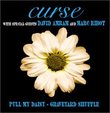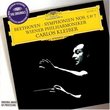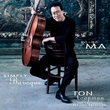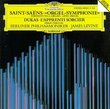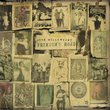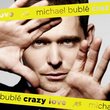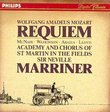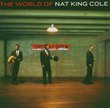| All Artists: Samuel Barber, Leonard Slatkin, St. Louis Symphony Orchestra Title: Music of Samuel Barber: Adagio for Strings, Op. 11/Orchestral Music; Leonard Slatkin Members Wishing: 0 Total Copies: 1 Label: EMI Classics Release Date: 10/25/1990 Genre: Classical Styles: Ballets & Dances, Ballets, Forms & Genres, Theatrical, Incidental & Program Music, Historical Periods, Modern, 20th, & 21st Century Number of Discs: 1 SwapaCD Credits: 1 UPCs: 077774946322, 077774946353 |
Search - Samuel Barber, Leonard Slatkin, St. Louis Symphony Orchestra :: Music of Samuel Barber: Adagio for Strings, Op. 11/Orchestral Music; Leonard Slatkin
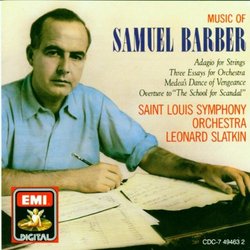 | Samuel Barber, Leonard Slatkin, St. Louis Symphony Orchestra Music of Samuel Barber: Adagio for Strings, Op. 11/Orchestral Music; Leonard Slatkin Genre: Classical
![header=[] body=[This CD is available to be requested as disc only.]](/images/attributes/disc.png?v=430e6b0a) ![header=[] body=[This CD is available to be requested with the disc and back insert.]](/images/attributes/disc_back.png?v=430e6b0a) ![header=[] body=[This CD is available to be requested with the disc and front insert.]](/images/attributes/disc_front.png?v=430e6b0a) ![header=[] body=[This CD is available to be requested with the disc, front and back inserts.]](/images/attributes/disc_front_back.png?v=430e6b0a) |
Larger Image |
CD DetailsSimilar CDsSimilarly Requested CDs
|
CD ReviewsBarber, the Modernist Romantic American Bass Barreltone | Phoenix, AZ United States | 06/01/2000 (5 out of 5 stars) "These are some of Barber's most memorable works, and this remains the best recording I have heard of the "Adagio" and the "Dance of Vengeance."First, then, the Essays, which I have not heard before. They are full of wonderful, powerful surprises. The first two were completed in 1938 and 1942, and they bear much similarity to his other earlier works, noticeably the Adagio (the repeated opening "crushed" chord and resolution). They bear the mark of a brilliant, if unfocused young composer (he was 28 and 32, respectively): a musical idea is presented, is not much developed, and soon gives way, with little transition, to a new idea. Each idea is fresh, and vibrant-- I can sense Barber writing as quickly as he can, to get each idea onto the page before he tires of it.Barber was, for a long time, a Romantic composer stuck in the twentieth century. It seems to have been a mark of pride for him to stick with the older style, and yet at times he seems uncomfortable with it. Though he was born too late (as it seems he thought), he is occasionally tempted to use the newer, emancipated dissonances of the modern era. In his Romantic music, this sounds out of place.However, by the time of the Third Essay, completed in 1978 (forty years later!), he had discovered his own sound-- one that did not rely so heavily on European Romanticism. It was at this point that he asserted his birthright as a twentieth-century American: rhythm. He finally allowed himself to be influenced by the likes of Stravinsky and Bartok, and his music became radically different. The contrast cannot be heard with more clarity than on this recording. The "Adagio for Strings" has been called the last great Romantic orchestral work, played (in its early form) for the funeral of John F. Kennedy; "Medea's Dance of Vengeance" was arranged and choreographed by the Star of Indiana Drum and Bugle Corps (brilliantly, I might add) in 1993.The "Adagio" is perhaps Barber's best known work, which is surprising, considering it was written by a 26-year-old. I have yet to hear the original string quartet played as I would like to hear it (and I have heard Kronos' version). The setting for choir, as "Agnus Dei" is magnificent (my favorite recording is by the Dale Warland Singers of Minnesota). This is a wonderful, passionate, and profound recording of the orchestrated version.As for "Medea," it is certainly among Barber's finest works. Here, there is no question: by the time of its completion, Barber was firmly grounded in the twentieth century. He uses percussion instruments and registrations with the deftness of a master. The meditation section of "Medea" creates a dark, intense mood, reflecting Medea's psychological agony over Jason's betrayal. The "dance" section is fiery, vicious, and relentless; I can easily envision Medea dancing wildly, savagely, over the horrific bodies of her children. The sudden appearance of her father from heaven is a ethereal moment in the music (my one complaint: the trombonist is overblowing!), and Medea's insane laughter allows Barber to end with a bang.I don't think much of the "Overture," but then, I didn't think much of "School for Scandal," anyway, so maybe it's suitable for the play, as he intended it. I don't hear anything particularly "Baroque" about the music, but it's a decent overture (I wish he'd written an opera for it!) At any rate, it's a good warmup for the listener's ears.All in all, a wonderful CD that should be on the shelf of anyone who loves music of the past two centuries." Barber's Music is Awesome Gregory M. Zinkl | Chicago, IL | 01/20/2000 (5 out of 5 stars) "Slatkin has recorded Barber's Adagio at least thrice: once each on Telarc (too fast), RCA (not as moving) and here for EMI. EMI is the one to have. Everything just fell into place.But then there's the rest of the disc. School of Scandal is scintillating and haunting at the same time! The Essays are great music that you should hear, especially performed as well as it is on this recording. And so it goes...The playing is exemplary, as is the engineering. I love this disc." The Best of Samuel Barber Robert E. Nylund | Ft. Wayne, Indiana United States | 12/22/2003 (5 out of 5 stars) "Samuel Barber's most popular orchestral works have seldom been as well-performed as they were by the St. Louis Symphony Orchestra conducted by Leonard Slatkin. This wonderful EMI recording is a lasting testament to the great things that Slatkin accomplished during his long tenure in St. Louis.The overture to "The School for Scandal" was an early triumph for Samuel Barber and it was clearly an exciting, dramatic, and sometimes lyrical work. Slatkin is very sensitive and understanding of this music and was able to lead the St. Louis musicians in one of the best performances of this popular work.Perhaps Barber's best-known work is the "Adagio for Strings," originally part of a string quartet. It bears the distinction of having a world premiere under the legendary Arturo Toscanini. It's interesting to note that Barber had gone to Italy one summer and managed to meet the Maestro, who was on his own summer vacation. Toscanini was impressed with the aspiring, young composer and was soon even more impressed with the "Adagio for Strings." Toscanini chose to premiere the "Adagio" with the NBC Symphony on a broadcast performance. It is one of the most deeply moving compositions by any American composer. I've seldom heard such a powerful performance as this one by Slatkin and the St. Louis orchestra.Toscanini also premiered the first of Barber's "Essays for Orchestra." Interestingly, however, the first recording of this energetic, colorfully orchestrated work was by Eugene Ormandy and the Philadelphia Orchestra in a 12-inch 78-rpm RCA Victor Red Seal recording. Slatkin not only conducted this work but the two essays which followed, the third of which is one of Barber's later works (with rather spectacular, imaginative writing for percussion).Finally, there is the rather jazzy and compelling "Medea's Dance of Vengeance." One critic referred to this as a boogie woogie for orchestra. It is very syncopated and almost overwhelming in its intensity, particularly in this performance. Anyone familiar with the legend of Medea will recognize that Barber has managed to faithfully depict the horrible events in this memorable work."
|

 Track Listings (6) - Disc #1
Track Listings (6) - Disc #1